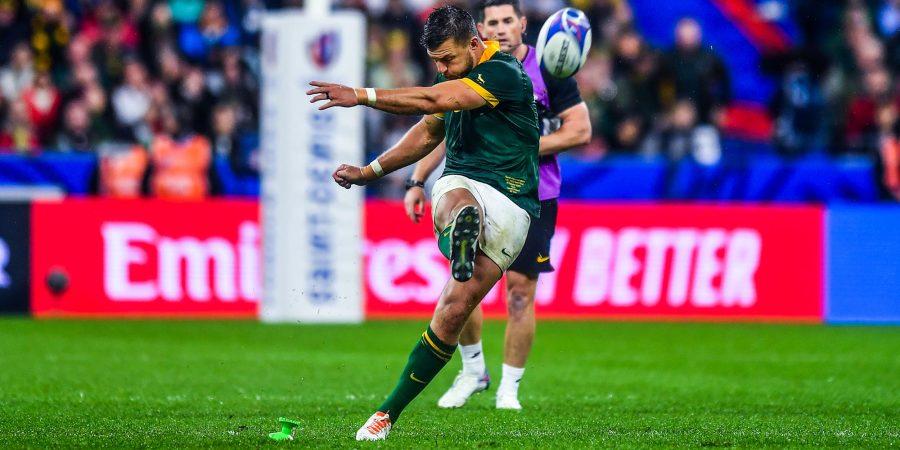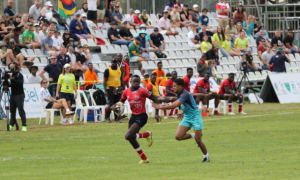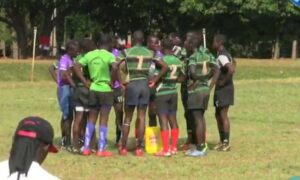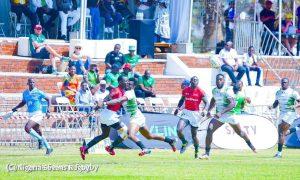The Springboks delivered one of the greatest comebacks in their history to overturn a nine-point deficit in the final 10 minutes to clear a sixth and final Rugby World Cup hurdle and now stand 80 minutes away from becoming the first team to win four titles after breaking English hearts 16-15 (halftime 6-12) in their semi-final at the Stade de France on the outskirts of Paris.
They head to a second successive final at the same venue on Saturday where they will meet the old foe, New Zealand, who have the identical incentive of chasing down their fourth title, albeit from two more tournament appearances than the Boks.
The Boks completed their journey to the final by ending the northern hemisphere’s last hope in the shape of England team having negotiated the “Pool of Death” and a hostile quarter-final against hosts France.
South Africa scored the only try of the match while Handre Pollard kicked two penalty goals – both of them from 50 metres – to record the Boks’ fifth win in six RWC meetings with England (the outlier is a defeat in the pools in 2003).
They had to do it in the worst conditions they have faced since arriving in France, on a cold, blustery and rain scattered autumnal evening. The conditions placed a premium on the kicking game and limited the opportunity for the Boks (or their opponents had they wished) to unleash their backs.
The box kicks and hanging crossfield kicks rained down quite as persistently in the first half as the rain with neither side winning any territorial advantage with ball in hand. The first half became a question of which team could not get the wrong side of referee Ben O’Keeffe’s whistle when in kicking range.
England proved the more adept winning the penalty shoot out – four out of four to two out of two – although South Africa did spurn a couple of opportunities in an attempt to score a maul try. On both occasions England were able to swarm and swim into the heart of the green jerseys to halt the drive.
England’s tactics – a cut-and-paste of South Africa’s 2019 method – paid dividends fir the first time in barely 60 seconds form kick off. They won a tap box from their box kick and after one carry in midfield Pieter-Steph du Toit was adjudged to have had his hands in a ruck and Owen Farrell slotted the first of his four kicks.
He added a second from pretty much straight in front when what appeared to be a Siya Kolisi steal was adjudged to have been hands in the ruck.
The Boks had been knocked back on their heels but they grew into the half and after spurning those two penalty shot opportunities they opted for poles in the 19th minute when a penalty for sealing at the ruck was advanced ten metres when Farrell prevented the Bok taking a quick penalty.
Manie Libbok slotted the goal from 40 metres but England reopened the lead when Kolisi was trapped on the wrong side of a ruck having made an important tackle after Damian Willemse loose pass from another aerial bomb had fallen to England hands.
Pollard was sent on as early as the 31st minute for Libbok and was presented with an easy three points when England were caught offside after they had spilled a Cobus Reinach aerial bomb in their own 22 to close the gap to three points (9-6).
England reopened the lead to six points with their fourth penalty – obstruction by Du Toit as he edged into an England player following up another box kick – just before the break to make it 12-6 and that’s the way it stayed as the Boks brought on the Bomb Squad: Faf de Klerk at 9 (42 minutes); Willie le Roux at 15 (44); RG Snyman at 4 (45) and Deon Fourie at 6 and Kwagga Smith at 8 (50), Ox Nche at 1 (51).
The changes produced the first glimmer of a try from either side when Le Roux was favourite to win the race for a grubber ahead after Pollard’s crosskick kick was caught and kicked ahead by Cheslin Kolbe.
But England stuck to their simple plan and moments later Farrell ratcheted up the pressure on the Boks with a 45m drop goal to extend the lead to nine points.
It felt like a knife to the heart but the Boks weren’t done and with ten minutes remaining scored the first try of the match after opting to push England back into their left hand corner from a kickable penalty.
England had halted all South Africa’s mauls so this time the Boks had hardly set it before moving the ball infield for Snyman to crash over from a couple of metres and to place the ball.
As the tension mounted and clock counted down it was the scrum that proved the decisive factor as a another penalty at the phase allowed Pollard to land the match-winning kick from 50 metres.





















